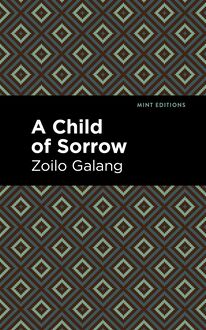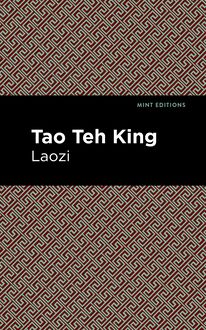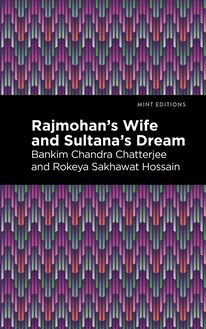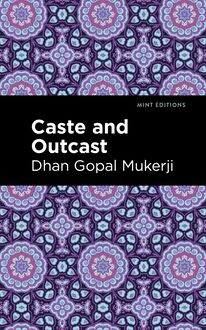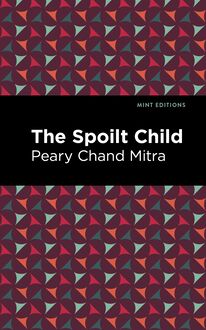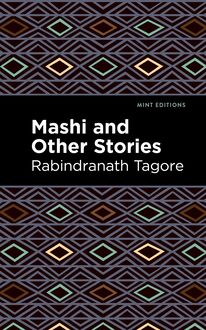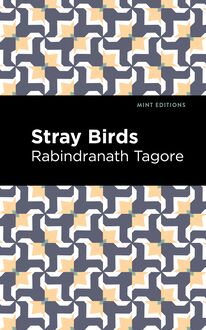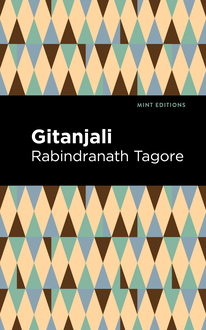-
 Univers
Univers
-
 Ebooks
Ebooks
-
 Livres audio
Livres audio
-
 Presse
Presse
-
 Podcasts
Podcasts
-
 BD
BD
-
 Documents
Documents
-
- Cours
- Révisions
- Ressources pédagogiques
- Sciences de l’éducation
- Manuels scolaires
- Langues
- Travaux de classe
- Annales de BEP
- Etudes supérieures
- Maternelle et primaire
- Fiches de lecture
- Orientation scolaire
- Méthodologie
- Corrigés de devoir
- Annales d’examens et concours
- Annales du bac
- Annales du brevet
- Rapports de stage
La lecture à portée de main
Vous pourrez modifier la taille du texte de cet ouvrage
Découvre YouScribe en t'inscrivant gratuitement
Je m'inscrisDécouvre YouScribe en t'inscrivant gratuitement
Je m'inscrisEn savoir plus
Vous pourrez modifier la taille du texte de cet ouvrage
En savoir plus

Description
Krishna Kanta’s Will (1878) is a novel by Bankim Chandra Chatterjee. Recognized as a pioneering work of Bengali literature with universal romantic themes, Krishna Kanta’s Will is a story that engages with the subjects of widow remarriage, land ownership, and heredity in Hindu culture. “If Krishna Kanta had ever desired to cheat his brother's son, and appropriate the entire property, there was now no obstacle in his way. But he had no such evil intention. He placed Gobind Lâl with his own family, and treated him in all respects like his own sons; he determined to draw up a will bequeathing to Gobind Lâl the half-share justly belonging to Râm Kânta Râi.” Raised in a loving home, orphan Gobind Lâl hopes to carry on his father’s legacy while honoring his uncle, who could have cut him out of the will entirely. Married to the beautiful Bhramar, he seems to have a life of fortune ahead of him. Meanwhile, Krishna Kanta’s sons, outraged at their father’s generosity, hatch a plan to switch the will with one they have written, employing the seductive widow Rohini to do their dirty work. Tragic and timeless, Krishna Kanta’s Will is a brilliant romance from a legendary figure in Bengali literature. With a beautifully designed cover and professionally typeset manuscript, this edition of Bankim Chandra Chatterjee’s Krishna Kanta’s Will is a classic of Bengali literature and utopian science fiction reimagined for modern readers.
Sujets
Informations
| Publié par | Mint Editions |
| Date de parution | 08 juin 2021 |
| Nombre de lectures | 0 |
| EAN13 | 9781513224008 |
| Langue | English |
| Poids de l'ouvrage | 4 Mo |
Informations légales : prix de location à la page 0,0450€. Cette information est donnée uniquement à titre indicatif conformément à la législation en vigueur.
Extrait
Krishna Kanta’s Will
Bankim Chandra Chatterjee
Krishna Kanta’s Will was first published in 1895.
This edition published by Mint Editions 2021.
ISBN 9781513299402 | E-ISBN 9781513224008
Published by Mint Editions®
minteditionbooks.com
Publishing Director: Jennifer Newens
Design & Production: Rachel Lopez Metzger
Project Manager: Micaela Clark
Translated by Miriam Singleton Knight
Typesetting: Westchester Publishing Services
C ONTENTS P ART I I II III IV V VI VII VIII IX X XI XII XIII XIV XV XV & XVII XVIII XIX XX XXI XXII XXIII XXIV XXV XXVI XXVII XXVIII XXIX XXX XXXI P ART II I II III IV V VI VII VIII IX X XI XII XIII XIV XV S EQUEL N OTES ON THE T EXT G LOSSARY OF I NDIAN T ERMS
PART I
I
In the village of Haridr â dwelt a great Zemind â r . His name was Krishna Kanta R â i, and he was a very wealthy man. The profit from his Zemind â ri amounted to nearly two lakhs of rupees. This wealth had been accumulated by himself and by his brother, R â m K â nta R â i, working together. The brothers were warmly attached, and at no time had it entered into the mind of either that the other could deceive him. The estates had all been bought in the name of the elder brother, Krishna Kanta R â i. The brothers messed together. R â m K â nta R â i had one son named Gobind L â l. After the birth of this son it came into R â m K â nta’s mind that the brothers’ joint possessions stood in one name, and that for the security of his son proper legal documents should be drawn out. For, though he knew Krishna Kanta incapable of deceiving him, or of acting unjustly towards him, yet what certainty had he as to what Krishna Kanta’s sons might do after their father’s death? Yet he could not bring himself to propose having legal papers made out, so he put it off from day to day. Necessity called him away to the estates, and there, suddenly, he died.
If Krishna Kanta had ever desired to cheat his brother’s son, and appropriate the entire property, there was now no obstacle in his way. But he had no such evil intention. He placed Gobind L â l with his own family, and treated him in all respects like his own sons; he determined to draw up a will bequeathing to Gobind L â l the half-share justly belonging to R â m K â nta R â i.
Krishna Kanta R â i had two sons and a daughter. The eldest son was named Hara L â l, the younger Binod L â l, the daughter Shoilobati. In his will Krishna Kanta bequeathed to Gobind L â l half the estate, to Hara L â l and to Binod L â l, each three-sixteenths, to the widow and to the daughter each one-sixteenth. Hara L â l was very unruly; disobedient to his father, and evil-tongued. The provisions of a Bengali will seldom remain secret, and Hara L â l, becoming acquainted with this disposition of the property, said to his father, his eyes inflamed with anger—
“What is this you have done? Half the estate to go to Gobind L â l, and to me only three-sixteenths?” 1
“It is quite just,” returned Krishna Kanta; “I have given to Gobind L â l his father’s half-share.”
“Gobind’s father’s share! What is that? Who is he to take from us our ancestral property? And the mother and sister, we will look after them. Why give a sixteenth to each of them? Say only that they are to be fed and clothed.”
Somewhat angered, Krishna Kanta said, “Hara L â l, the property is mine not yours, I shall dispose of it as I choose.”
“You must have lost your senses! I will not permit you to please yourself in the matter.”
Yet more angry, Krishna Kanta returned, “Hara L â l, if you were a child I should call in the Guru and get him to give you a caning.”
“When I was a child I set the Guru’s beard on fire. Now I will serve that will in the same way.”
Krishna Kanta made no further reply; he tore up his will, and had another drawn out, in which he gave half to Gobind L â l, five-sixteenths to Binod L â l, one-sixteenth each to the widow, to the daughter, and to Hara L â l.
Enraged at this, Hara L â l left home for Calcutta, whence he wrote to his father to this effect—
“The Calcutta Pandits say that widow marriage is allowed by the Sh â stras. I have resolved to marry a widow. If you choose to change your will, giving me half the estate, and will have the new will registered at once, I will give up this design. Otherwise I shall marry a widow very soon.”
Hara L â l thought that his father, becoming alarmed, would change the will, and assign him a larger portion, but the answer he received destroyed this expectation. Krishna Kanta wrote—
“I no longer recognise you as my son. You may marry whom you will. I shall leave the property to whomsoever I choose. If you effect this marriage, I shall change my will, certainly, but it will not be to your advantage.”
Some time later Hara L â l sent word that he had married a widow. Again Krishna Kanta destroyed his will, intending to make a fresh one.
In the village lived a good, contented man, named Brahm â nanda Ghosh. He addressed Krishna Kanta as Uncle, and was much favoured and supported by him.
Brahm â nanda wrote an excellent hand. All these legal documents were written by him. So when Hara L â l’s news came, Krishna Kanta sent for Brahm â nanda, and told him to come up to the house after his meal to write a new will. Binod L â l, who was present at this moment, asked, “Why do you again change your will?”
Krishna Kanta said, “This time nothing will be left to your elder brother.”
Binod. “That is not well. Even supposing him to be in fault, still, he has a son. The child is innocent. What will he have to depend on.”
Krishna. “I will bequeath him a sixty-fourth share.”
Binod. “In the division of the property what will that represent?”
Krishna. “My income is two lakhs of rupees. A sixty-fourth share will come to more than three thousand rupees. With that sum a grihastha can easily get on in the way of food and clothing. I will not give more.”
Binod L â l urged the matter long, but in vain. The Kart â could not be persuaded to change his purpose.
1 . See Notes on the Text, Note 1.
II
After his bath and meal, Brahm â nanda was preparing to sleep, when, to his astonishment, he saw Hara L â l R â i before him. Hara L â l advancing, sat down at his side by the head of the bed.
Brahm. “Why, I declare, here is the young master! When did you come home?”
Hara. “I have not been home yet.”
Brahm. “You have come straight here? How long is it since you came from Calcutta?”
Hara. “I came from Calcutta two days ago, and have been in hiding here. So there is to be a new will written. Eh!”
Brahm. “So I hear.”
Hara. “This time I am to have nothing?”
Brahm. “The Kart â says so now he is angry. But that won’t last.”
Hara. “It is to be written this evening, isn’t it? And you are to write it?”
Brahm. “How can I help that? I can’t refuse the Kart â .”
Hara. “You are not to blame. Do you feel disposed to earn something?”
Brahm. “In the way of a beating, do you mean? Then why don’t you strike me?”
Hara. “Not that. A thousand rupees.”
Brahm. “By your marrying a widow, I suppose.” (That is, marrying for money.)
Hara. “Just so.”
Brahm. “You are too old for that.”
Hara. “Well, I have other matters to speak of. Let us begin. Take something in advance.”
Thus saying, Hara L â l put a note for five hundred rupees into Brahm â nanda’s hand.
Brahm â nanda turned the note over and over. “What am I to do with this?”
Hara. “Invest it. Give ten rupees of it to Moti, the milkwoman.”
Brahm. “I have nothing to do with milkwomen. Tell me what you want me to do.”
Hara. “Prepare two pens. Let them be exactly alike.”
Brahm. “Very good. I’m listening.” As he spoke, Ghosh Mah â shay took two reed pens and cut them exactly alike. Then, trying them, he saw that they produced precisely similar writing.
Hara. “Well, you must keep one of the pens in your box. Use it when you are writing the will. Write something now with the other pen. Have you good ink?”
Brahm. “Are there not pens and ink in your house that I should have the bother of taking these?”
Hara. “I have an object in view, else why should I give you that money?”
Brahm. “I thought as much.”
Hara. “Well, they may wonder at your taking your own pen and ink. In that case all you have to do is to find fault with the office ink and paper.”
Brahm. “I’ll find fault with the Government itself if you like, let alone official pens and ink.”
Hara. “There is no need to go so far as that. Now to the point.”
Then Hara L â l placed two sheets of general letter paper in Brahm â nanda’s hand, who exclaimed, “Why, this is Government paper!”
Hara. “Not Government paper. It is the paper used in attorneys’ offices. I know the Kart â has his wills written on this paper. That is why I have got some of it. Now, write on this paper, and with this ink what I shall tell you.”
Brahm â nanda began to write. Hara L â l dictated a form of will, of which the substance ran thus: “This is the last will and testament of Krishna Kanta R â i. Whatever property stands in his name shall, after his death, be divided thus—To Binod L â l, three-sixteenths; to Gobind L â l, to the widow, to Shoilabati, and to Hara L â l’s son, each a sixty-fourth part; and to Hara L â l, the eldest son, the remaining twelve-sixteenths—or three-fourths.”
The writing finished, Brahm â nanda said, “Now the will is written, who signs it?”
“I do,” said Hara L â l, adding the names of Krishna Kanta R â i, and four witnesses to the will.
Brahm. “A pretty stroke of forgery, this!”
Hara. “This is the genuine will, the forged will is the one that is going to be written this evening.”
Brahm. “How can that be?”
Hara. “When you go to write the will you must take this one concealed in the pocket of your pir â n . When there, you must, with this pen and ink, write what they tell you. Paper, pen, ink, and writer will all be the same, so the two wills will, to all appearance, be alike. Then when you have read out the will and got it signed,
-
 Univers
Univers
-
 Ebooks
Ebooks
-
 Livres audio
Livres audio
-
 Presse
Presse
-
 Podcasts
Podcasts
-
 BD
BD
-
 Documents
Documents
-
Jeunesse
-
Littérature
-
Ressources professionnelles
-
Santé et bien-être
-
Savoirs
-
Education
-
Loisirs et hobbies
-
Art, musique et cinéma
-
Actualité et débat de société
-
Jeunesse
-
Littérature
-
Ressources professionnelles
-
Santé et bien-être
-
Savoirs
-
Education
-
Loisirs et hobbies
-
Art, musique et cinéma
-
Actualité et débat de société
-
Actualités
-
Lifestyle
-
Presse jeunesse
-
Presse professionnelle
-
Pratique
-
Presse sportive
-
Presse internationale
-
Culture & Médias
-
Action et Aventures
-
Science-fiction et Fantasy
-
Société
-
Jeunesse
-
Littérature
-
Ressources professionnelles
-
Santé et bien-être
-
Savoirs
-
Education
-
Loisirs et hobbies
-
Art, musique et cinéma
-
Actualité et débat de société
- Cours
- Révisions
- Ressources pédagogiques
- Sciences de l’éducation
- Manuels scolaires
- Langues
- Travaux de classe
- Annales de BEP
- Etudes supérieures
- Maternelle et primaire
- Fiches de lecture
- Orientation scolaire
- Méthodologie
- Corrigés de devoir
- Annales d’examens et concours
- Annales du bac
- Annales du brevet
- Rapports de stage

